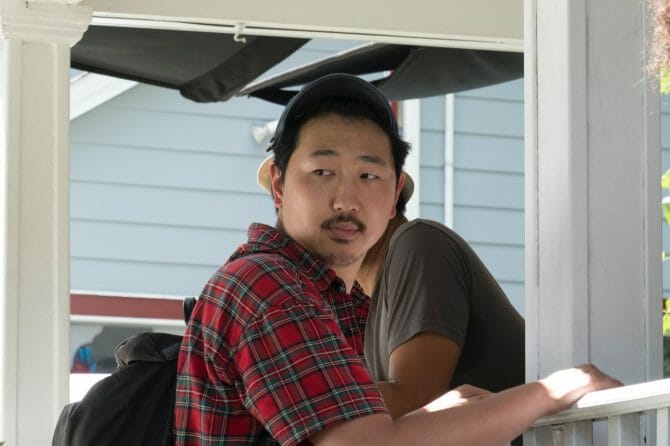Andrew Ahn is one of the most exciting up-and-coming directors on the independent film scene. After a long history of working his way up through the ranks at programs like the Sundance Screenwriters Lab and the Film Independent Screenwriting and Directing Labs, he broke out in 2016 with his first full-length feature film, Spa Night. Since then, Ahn has continued to direct episodics and other projects. And in 2019, he premiered his second full-length feature film, Driveways.
After premiering at the Berlin International Film Festival in 2019, Driveways spent the rest of last year making the indie film festival circuit before arriving for its commercial release on streaming services today (May 7th).
The film follows Kathy (Golden Globe-nominee Hong Chau, Downsizing; HBO’s Watchmen), a single mother, who travels with her shy eight-year-old son Cody (newcomer Lucas Jaye), to Kathy’s late sister’s house which they plan to clean and sell. As Kathy realizes how little she knew about her sister, Cody develops an unlikely friendship with Del (Golden Globe, Tony-winner and longtime acting legend Brian Dennehy, in one of his final leading roles) the Korean War vet and widower who lives next door. Over the course of a summer and with Del’s encouragement, Cody develops the courage to come out of his shell and, along with his mother, finds a new place to call home.
Variety film critic Peter DeBruge wrote, “Driveways [is] that uncommon and all-too-welcome gift – like some kind of fragile wildflower, emerging tentatively through cracks in the concrete: a film about kindness.”
GLAAD caught up recently with Ahn to ask him about what it was like bringing Driveways out into the world, along with the queer sensibilities inherent in his filmmaking, and what it was like to work with his incredible cast!
For those who haven’t seen it yet, how would you describe Driveways?
Driveways is about a single mom who drives across the country with her young son to clean out the house of her estranged sister who has passed away. It turns out that her sister was a hoarder, so what they thought would take a few days is going to take her weeks. While she cleans, her son strikes up an unlikely friendship with the old man who lives next door. The film is about connection and family, both biological and chosen. How do we overcome the barriers that separate us and make connections?
How did you become attached to this script and the project as a whole?
Our producer, Joe Pirro, reached out to me after having seen my first feature Spa Night. He had been working with our writers, Hannah Bos and Paul Thureen, on the script and he felt like the story might resonate with me. I had been looking for something to sink my teeth into for a while, but couldn’t find a script I loved. When Driveways came my way, I knew immediately I wanted to do it. The script had such heart, so much love and respect for its characters — that’s impossible to fake.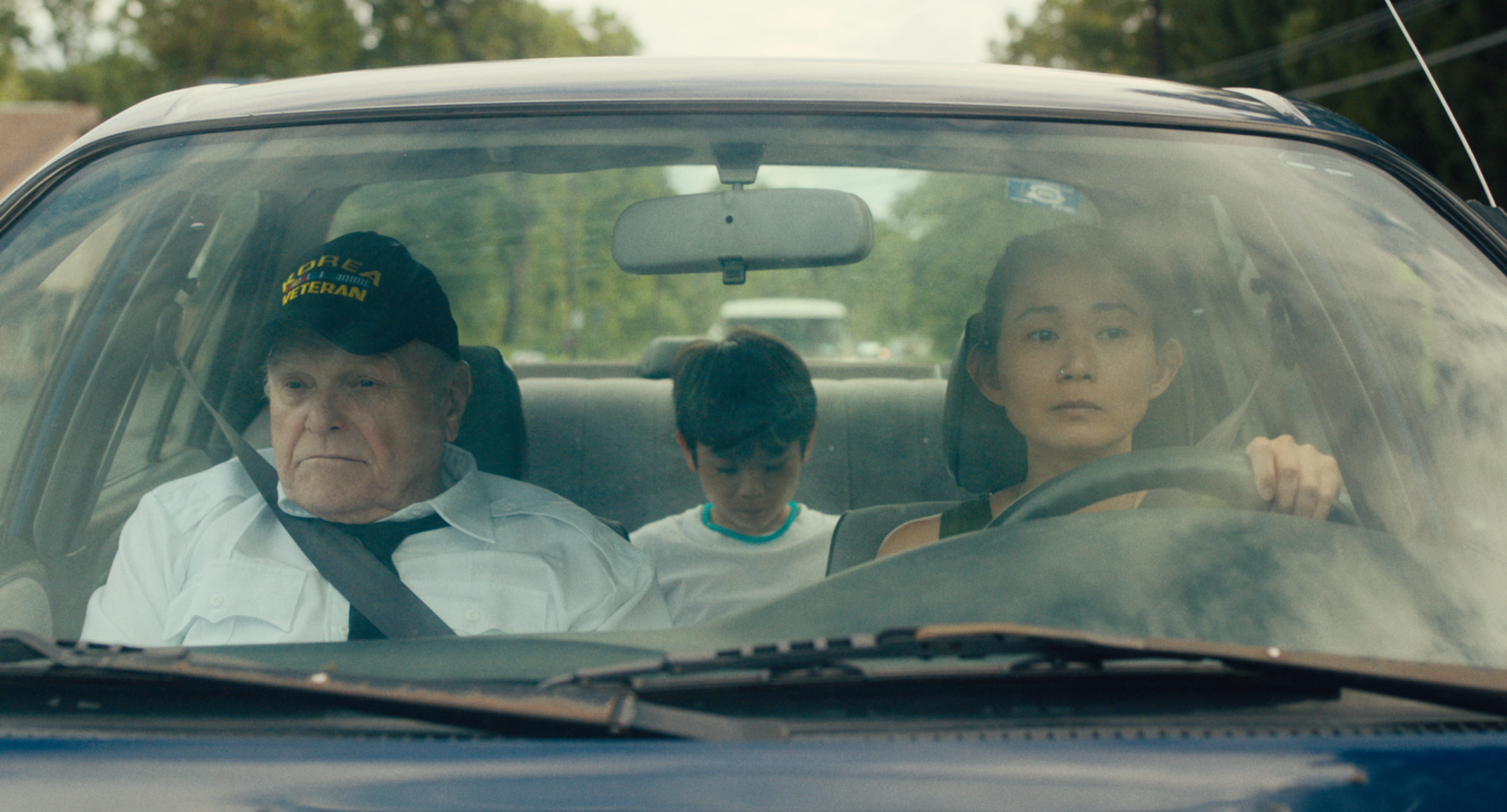
There’s nothing explicitly queer in the script besides Del’s (Brian Dennehy’s) character’s daughter – who’s a minor character – being a lesbian; but the film definitely has a queer sensibility about it. How would you describe that feeling in the film?
As a queer person, I think everything I make is a little queer! I don’t even do it consciously — it just happens! I think it has something to do with my point of view. I’m an outsider, I’m an observer, but most importantly, I respect the people I represent on screen. Does Cody grow up to be queer? Perhaps! But that’s for Cody to figure out, not for us to exploit. It’s this respect for another person’s identity that feels really queer to me.
This was one of Brian Dennehy’s last projects before he passed away. How was it to work with such an acting legend? And what has the process been like for you in coping with his passing?
Brian was an inspiring actor to work with. He could have shown up to set and phoned in his performance and I would have been grateful. Instead, he worked so hard. Every take, every scene, every day, he wanted to do his best. He loved to ask questions, give his opinion, challenge, explore. I feel so honored to have worked with him on Driveways. It’s been very bittersweet as more and more people watch the film, praising his beautiful performance. I wish he could have been around to hear it all. After I heard the news of his passing, I got in touch with his wife and per Brian’s family’s request, I made a donation to Feeding America to honor Brian.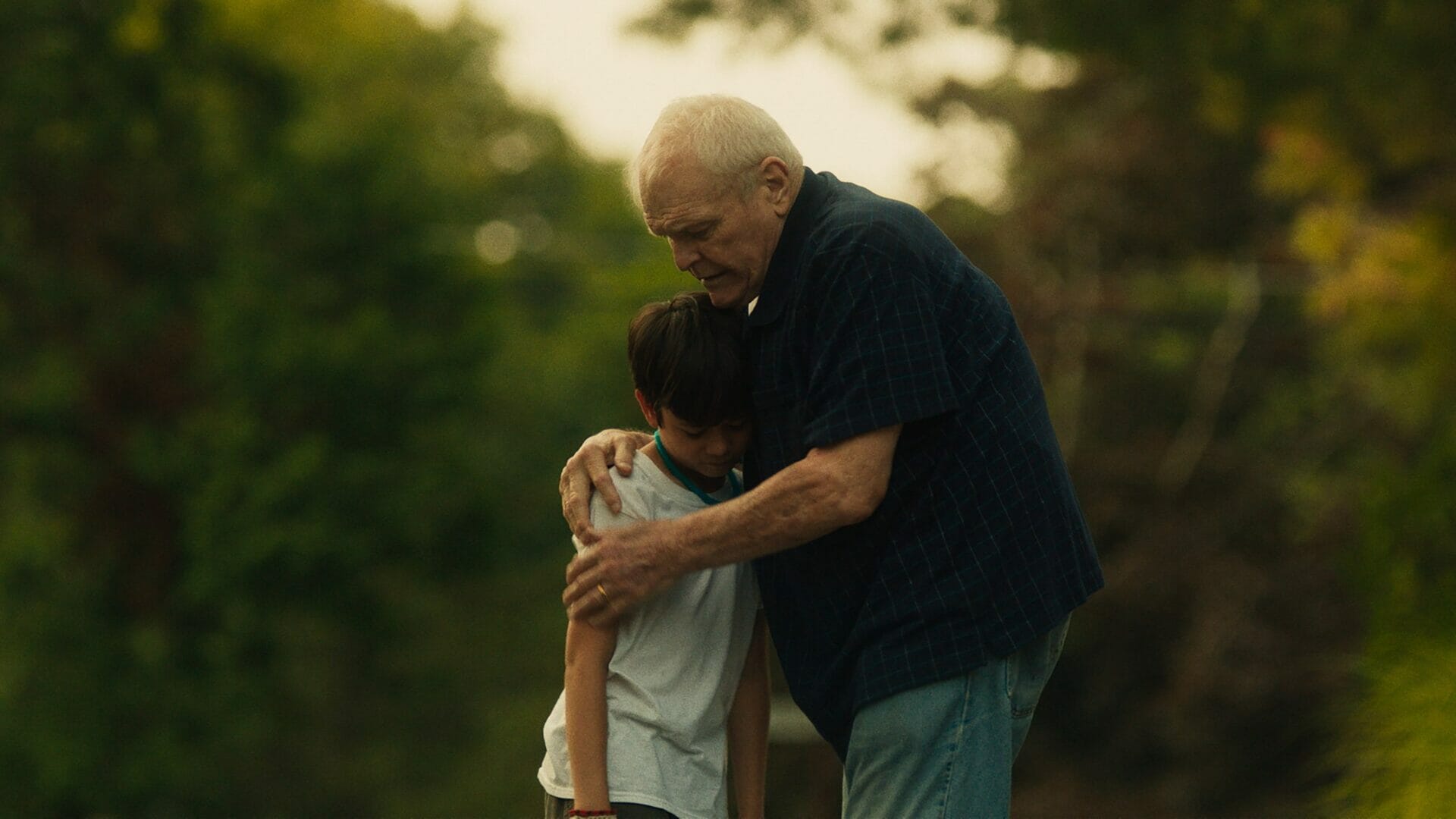
It’s always challenging working with child actors, but how was it working with Lucas Jaye?
Lucas is great! He has so much natural ability and charisma. This was his first film, but he went toe to toe with Brian and Hong. As a director, I focused on creating an environment that felt supportive and fun. The more relaxed actors are, the more vulnerable they can be, the more intimate the performance. I didn’t talk to Lucas much about backstory or motivations. I kept it rooted in the present.
Not to mention, the incredible Hong Chau is in this film too! How did you capture that bond that her character plays as the mother to Jaye’s character?
Hong has this amazing ability to make everything around her feel better. The writing feels tighter, the other actors feel more present, the production design looks better — she activates the world around her, the sign of a true actor. She found subtle ways to build history into Kathy and Cody’s relationship. For example, she wanted a nickname for him and started calling Cody “professor.” I found what she was doing so inspiring, I just made sure the cameras were rolling!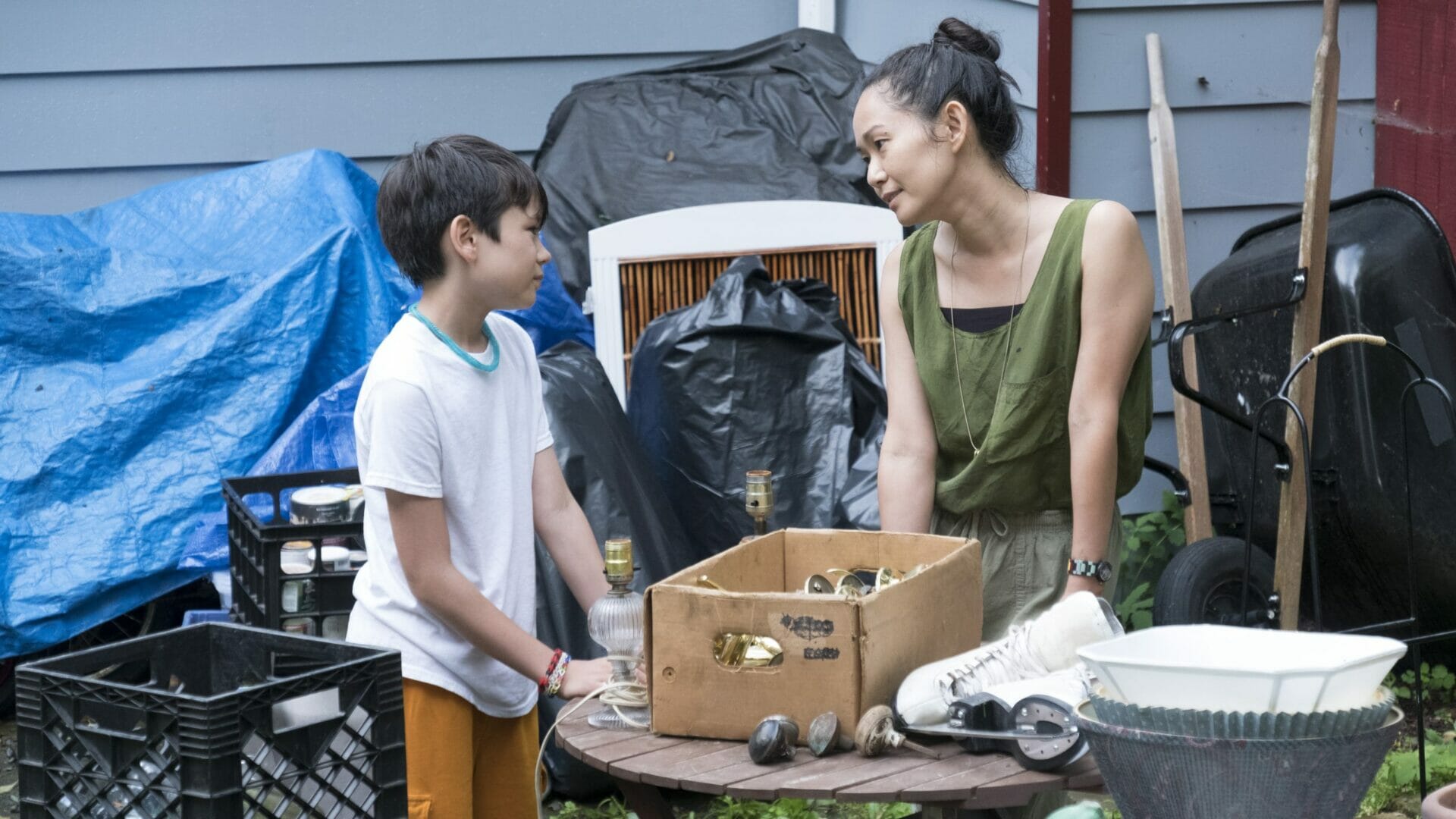
It’s still rare that we see leading Asian-American narratives in film. Were the lead roles originally written that way? Or did you cast Hong and Lucas after attaching to the project?
The roles of Kathy and Cody were open ethnicity, but I imagine many directors in this industry would have just cast white actors without a second thought. It may be reductive, but I suggested Kathy and Cody be Asian-American because I’m Asian-American and I wanted to work with Asian-American talent. When I read the script, I immediately saw Hong in my mind. This tough, but vulnerable mother — I just knew she could knock it out of the park. So, when I met with our producers, Joe Pirro and James Schamus, I proposed the idea. They loved it and the rest is history.
Driveways received two Independent Spirit Award nominations – for Chau for Best Female Lead and for Best First Screenplay for Hannah Bos and Paul Thureen. Were you expecting that would happen? And what were your reactions when you learned about the nominations for your film?
It was such a lovely surprise. We really felt like it was a long shot. Driveways hadn’t been released yet; we only qualified because of our festival play. At that time, very few people had seen the film. When the announcements were made, I freaked out. I was spazzing out so much after Hannah and Paul’s nomination was announced that I nearly missed hearing Hong’s name get called a minute later.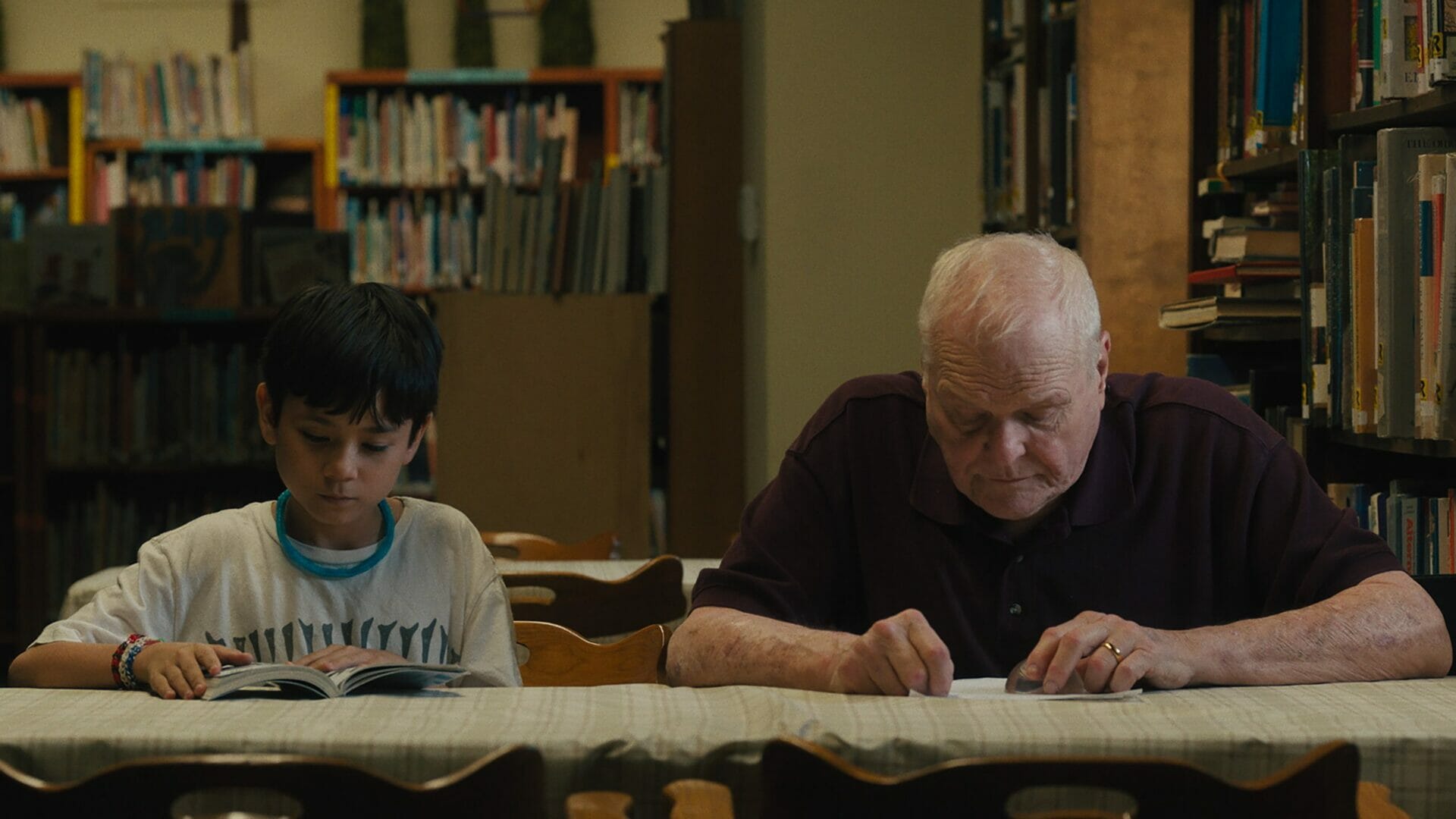
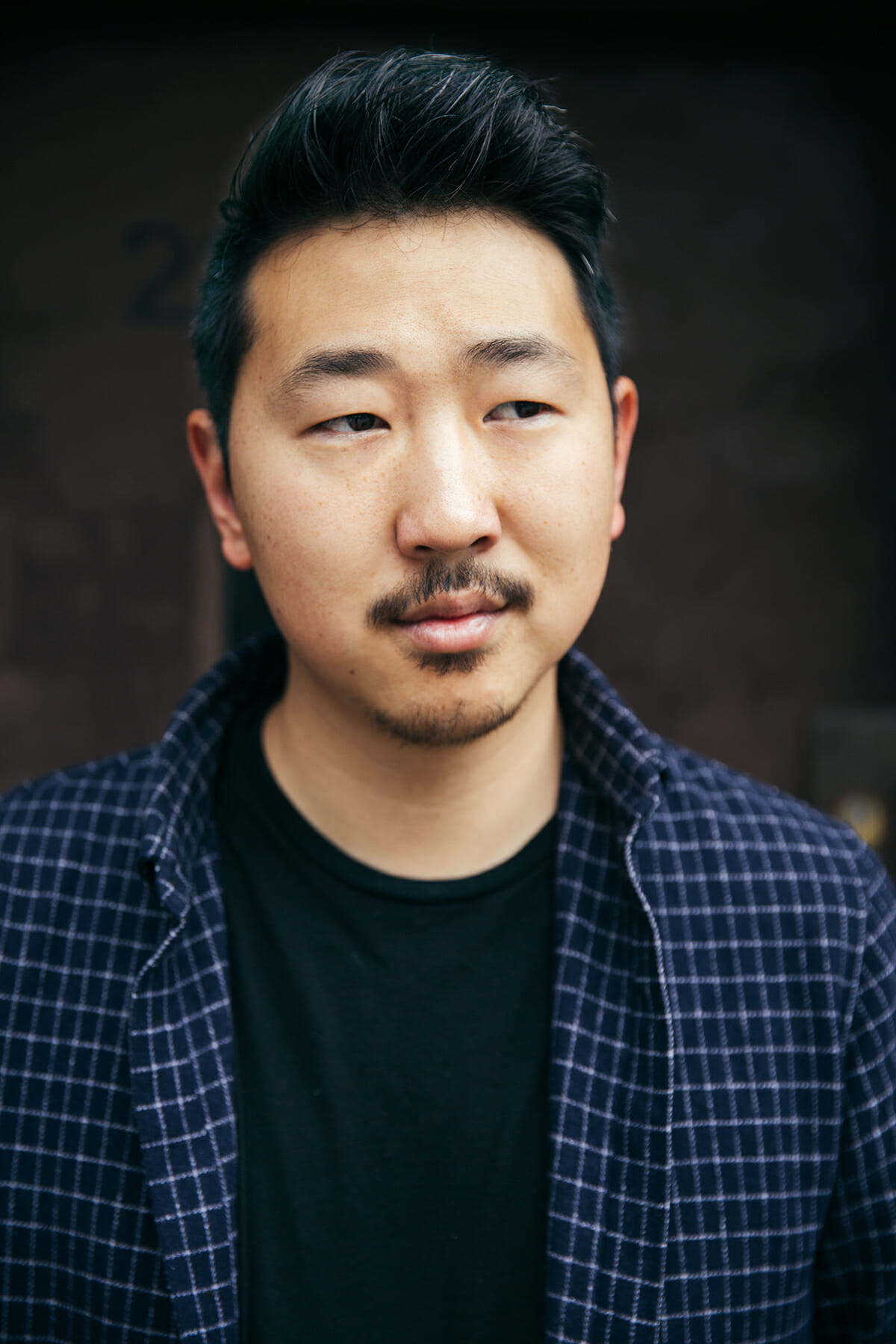 How was making this, your second feature film, a difference for you as a filmmaker than making your first feature film, Spa Night?
How was making this, your second feature film, a difference for you as a filmmaker than making your first feature film, Spa Night?
Making Driveways was a very different experience from making Spa Night. Spa Night was made very independently for a very small budget from a very personal screenplay I had written myself. That said, the creative process is the same. How do you tell a great story? How do you know what to emphasize, prioritize? How do you support your cast and crew to do their best work? These are the challenges I love to face; they really motivate me as a filmmaker.
What’s up next in your career? Are you already working already on your next project?
I’m working on a number of features, some Asian-American, some queer, some both! I want to have fun in my career so I’m exploring different genres and styles. The one thing I want to do that I haven’t quite figured out yet — I’m dying to do a queer love story.
Driveways is available to rent and watch now on several digital platforms, including Amazon Prime, iTunes, Google Play, Microsoft, and streaming via Virtual Theaters.

